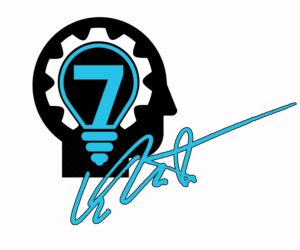Last week one of my clients asked me to meet with a friend of his from college. This particular client was a conceptual contributor to my recently published book, “The 7 Gears of Business” so I was more than happy to meet a friend of his.
I meet many of my business coaching clients for coffee in quaint downtown Edmond, OK. I’m not a huge boutique coffee drinker, much to my eldest daughter’s dismay, but I will plug for Ellis Island Coffee Shop – a good cup of Joe.
This young fella, and by young I mean probably 30ish – “sheesh I’m getting old”, had a lot of questions about the business. Also about partnership concepts as well as a host of other inquiries. I must say I really do enjoy visiting with people who ask good questions and my new friend, Skyler, asked some great ones.
One, in particular, stood out.
I shared with him the statistic that 90.7% of businesses fail and close their doors within 3 years and 4 months of opening.
That’s a lot when you think about the hours, effort, emotions, and dollars that men and women across this country pour into these startups.
He asked me the bazillion dollar question. Why do these businesses fail?
My response was; “Basically because they don’t approach it like a business operation.”
His next question was even better. “How do they approach it?”
“They approach it like it’s a great idea or a passionate endeavor. Which it may very well be, but that’s not enough, it never is enough.”
I further explained that having a business idea is actually the easiest part of having a business. There’s no real investment in having an idea. Ideas are cheap. Think about that.
What is valuable is execution. Consistent, reliable, reproducible, scalable execution is infinitely valuable. In some cases, the business product or service can be bad. But if the operation is run well, the business can be valuable. Think the cigarette industry. Pretty awful product, smells bad, stains things, and ultimately kills people. But hey, do they have quite a machine of a business? Yes.
Skylar was a bit shocked at my statement and asked me to elaborate. Showing Skylar the 7th Gear Business Model, I pointed out that every business, while selling a different product, has 7 important things in common.
Most business owners are unaware of the key areas (or gears) of business. They tend to understand 3-4 of them but not how they all work together and certainly not the importance of building them like a machine. The external activities are obvious to most entrepreneurs: Marketing, Sales, and Fulfillment.
You see these things when you walk into almost any establishment.
But it’s what you don’t see that foretells success or failure long-term. The internal activities of Management, Operations, and Finance are behind the curtains as well as the critical Leadership Gear that we refer to as the 7th Gear.
The obvious activity usually has 90% of the effort. The bottom of the priorities contains the operational activities.
Sad, but true. If you want to find your strengths and weaknesses as an entrepreneur, complete my online diagnostic and pop me an email. We need to talk and if you’re lucky, we can grab some coffee downtown together too.

Business owners and entrepreneurs are invited to take my Free Online Assessment on the main page of the 7th Gear Website.










